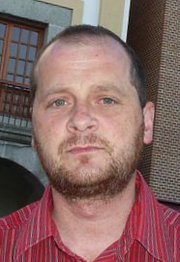Rationale
Open Access (OA) is still a new concept. Last February 2012 was the 10th anniversary of the Budapest Open Access Initiative (BOAI), the first public declaration about OA and its infrastructure through the combination of two methods: Gold Open Access, allowing researchers to publish in OA journals, and Green Open Access, allowing researches to place their previously published works in OA repositories with the aim these will be open accessed and reused.
As consequence of the knowledge OA development, and also due to a most implication of the Governments and Institutions regarding OA policies, a very significant increase of OA resources has been achieved through journals and repositories. This rising of the free accessible knowledge and also of the virtual emplacements to store the open resources has caused an improvement of the tools, techniques and, specially, interoperability among repositories, all of them designed to offer solutions in a new complex and decentralized technological ecosystem. This way, the number of OA repositories has increased and they become in a key element of the eResearching infrastructure.
The main goal of this track is to gather experiences and works to disseminate initiatives, programmes and projects about both theoretical and technological issues related to Open Knowledge with regard to two key elements: the open access to the scientific knowledge and Science 2.0, organized in the following blocks:
- The current theoretical framework of the open knowledge management: repositories and Science 2.0
- Open Access technology, where is important to explore technological issues regarding persistence, maintenance, preservation, interoperability and dissemination of the OA repositories, and also its involvement in the Semantic Web throughout the application of Linked Open Data (LOD) schemes.
- Science 2.0 regarding applications and resources of the Social Web for researching, including the evaluation of these tools too.
Topics
I. Open Knowledge management: Open Access repository and Science 2.0.
- Science 2.0: The Use of Social Networking in Research
- Science 2.0: Tools and experiences sharing research.
- Science 2.0: Tools and experiences sharing resources.
- Science 2.0: Tools and experiences sharing results.
II. Open Access Technology:
- Metadata
- Domain metadata (research institutions, cultural memory institutions, education, government, and scientific fields).
- Metadata for e-Science
- Metadata principles, guidelines, and best practices
- Conceptual models and frameworks (e.g., RDF, DCAM, OAIS)
- Metadata uses (preservation, curation, institutional repositories, publishing)
- Social tagging and user participation in building metadata
- Knowledge Organization Systems (ontologies, taxonomies, authority files, folksonomies, and thesauri) and Simple Knowledge Organization Systems (SKOS)
- Ontology design and development. Integration of metadata and ontologies
- Linked data and the Semantic Web (metadata and applications)
- Open Access Repositories
- Open Access Repository Interoperability
- Open Source: Software and Frameworks
- Services making use of repository metadata
- Infrastructure for use and reuse of content
- Semantic Web. Repositories Linked Open Data
- Added-value services for repositories
- Long-term preservation of repositories and their contents
- Role and impact of repositories in the research ecosystem
III. Bibliographic description and Interoperabilty:
- Resource Description and Access (RDA)
- Semantic mapping from RDA to metadata schemes
- Interoperability for digital libraries and repositories
- Interoperability and Linked Data
- Metadata interoperability and bibliographic platforms
Paper language
English
Presentation
Two presentation modalities are allowed:
- Main session will be composed of twenty minutes oral presentations organized in a panel with a final discussion with the assistants.
- Experiences will presented in PechaKucha session: 20 slides showing during 20 seconds each one. The exposition is limited to 6 minutes and 40 seconds.
Language: English (and Spanish)
Submission
Submission dates: http://teemconference.eu/2013/dates/
Submission format: http://teemconference.eu/2013/submission/
Submissions must be done through https://www.easychair.org/conferences/?conf=teem2013, choosing this track before to proceed.
Track Scientific Committee
Francisco José García Peñalvo (University of Salamanca, Spain) – Chair
Tránsito Ferreras-Fernández (University of Salamanca, Spain) – Co-chair
José Antonio Merlo Vega (University of Salamanca, Spain) – Co-chair
Anna Clements (EuroCRIS)
Ageo García (Tulane University, USA)
Jane Greenberg (Metatada Research Center, University of North Carolina at Chapel Hill, USA)
Nikos Houssos (EuroCRIS)
Keith Jeffery (EuroCRIS)
Brigitte Joerg (EuroCRIS)
Iryna Kuchma (EIFL-OA Programme Manager)
Pedro Príncipe (University of Minho, Portugal)
Helena Martín Rodero (University of Salamanca, Spain)
Julia Martínez Saldaña (Universidad Autónoma de San Luis Potosí, Mexico)
Eva Méndez Rodríguez (University Carlos III of Madrid, Spain)
William Moen (University of North Texas, USA)
Fatih Oguz (University of North Carolina at Greensboro, USA)
Robin Rice (Edinburgh University Data Library)
Oya Rieger (Cornell University Library)
Ana Belén Ríos Hilario (University of Salamanca, Spain)
Javier Sanz Valero (Miguel Hernández University, Spain)
Special Issue
The accepted papers in this track will be invited to prepare and submit an extended version to be considered, after a new peer review, for publication in a Special Issue in Program (http://www.emeraldinsight.com/journals.htm?issn=0033-0337).
More info
 José Antonio Merlo Vega
José Antonio Merlo Vega
University of Salamanca
Faculty of Translation and Documentation
C/ Francisco de Vitoria 6-16
Salamanca 37008
Spain
 (+34) 923 294580
(+34) 923 294580
 merlo@usal.es
merlo@usal.es
